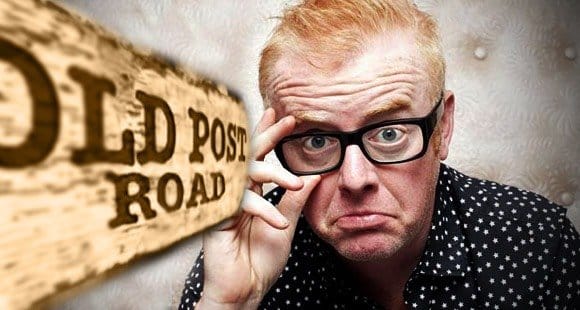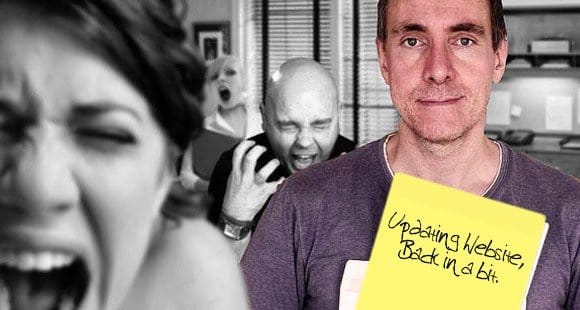Is it Bad Practice to Change Old Blog Posts or Pages?

This is a surprisingly common question with a surprisingly deep answer. Which is good, because if all you wanted was a yes or a no, you’re coming to the wrong place. Besides, a one-word blog post tends to be looked on as thin content, and no one wants that.
So, changing your older blog posts. Should you? Shouldn’t you? It all comes down to how and why you’re changing the post. Consider this.
Changing Timestamps
This is an incredibly minor change; all you’re doing is changing your blog post timestamp to make the post look more recent, or older, depending on your purposes.
- Older: making a blog post look older would give it some potential credibility, particularly in niches where seniority matters.
- Newer: refreshing a post and making it look more recent makes it look more valuable, as it’s a more recent resource. Everyone prefers up to date information over old information, right?
The problem with changing the date on your blog posts is one related to Google, of course. As if you would expect anything different. See, Google knows it’s completely trivial to change the date of a post. Many posts don’t even have dates associated with them. Google pays no attention to the timestamp you put on a post. Instead, they only really care about the date they indexed the post originally, and any date at which they notice changes to the content. Changing the date won’t do anything for you, search-wise.
Now, people-wise it may be a different story, but you then have an ethical concern. Does making a post seem older or newer to boost credibility count as lying to your users? Either way, the chances of it having a major effect, positive or negative, are slim.
Updating to Remove Mistakes
Step one: publish a post. Step two: go out for lunch. Step three: check your post comments when you’re back at the office. Step four: kick yourself for the obvious typo you notice in the first paragraph. Sound familiar?
Mistakes happen. Mistakes happen all the time. You can’t even claim that the only perfect post is a post written by a robot; robot content is often worse than real human content. It’s perfectly natural to make a mistake in a post.
It’s also perfectly natural to fix those mistakes, whether you’ve noticed them after ten minutes, ten hours or ten months. There’s nothing wrong with diving in and editing an old post to fix a type or correct a mistake.
This becomes more important as the mistakes grow. If, for example, you list that you don’t ship to certain countries, but later find out that you do, correcting that mistake may have large consequences.
Updating to Refresh Information
Tick another notch up the scale. This happens very frequently in SEO and marketing; things change, making old posts and old resources that were once invaluable obsolete. How often have you found a great reference for making a perfect Facebook profile, only to find that it’s referring to image dimensions and techniques Facebook no longer allows? Just look at any blog post that claims you need a Google+ account for the Authorship potential. These are the kinds of issues you face as a blogger.
Editing an old post to correct old and bad information is a value judgment you need to make. A post with 15 tips to optimize your page might have 13 valuable tips and two outdated tips. Those outdated tips make people not want to trust the rest of your post, and they’re a minor part of the content, so it’s perfectly fine to edit them. On the other hand, a whole post about the benefits of Authorship might not be worth salvaging. Instead, you could just add a header in bold, a dated update that “Authorship has been killed; see here for details” with a link to a new, better post.
Very rarely, you might have the idea that an old piece of content with a lot of incoming links but no modern value – like a post about Authorship, for example – could be repurposes. You could write an entirely new post and edit the content of that old post, and reap the benefits of the old incoming links.
This is straying closer to black hat territory. All of the incoming links are assuming, possibly through context and anchor text, that the content of the post is about one subject. If a user clicks through and finds a completely different post at the same URL, they’re going to wonder what went wrong. This might bring you some short-lived SEO benefit, but eventually it will die off and could earn you a penalty along the way.
In general, if you have to change a significant amount of the content, particularly if it shifts topic entirely, you might want to avoid the changes. Sometimes its better to just let old posts lie.
You should probably avoid deleting old posts. The only real legitimate reasons to delete old posts are if they’re duplicate content, they’re scraped content, they’re spun content, they’re thin content or they’re completely terrible and embarrassing. Otherwise, even bad old content has a purpose, even if it’s just to indicate that your blog has grown.
Changing the URL
If you’re updating an old post for the sake of SEO, don’t change the URL. A new URL means a new post, as far as Google is concerned.
The only exception to this is if you’re changing from a nonsense URL (www.example.com/11994488431291.asp) to a well-formed URL (www.example.com/well-formed-blog-post), but these cases allow you to add rel=”canonical” and redirect the old URL.
Merging Pages
Merging pages is also not an uncommon strategy, particularly when you have a lot of old, thin content that’s still valuable, but could be more valuable merged into one page. One example would be if you had an old FAQ with every question and answer spread out into different posts. That’s a lot of posts of thin content. Instead, merge them all into one page and redirect the old pages to the new page. This will buff up your good content and eliminate Panda penalties along the way.
In general, you’re probably safe editing old content. There’s no rule against it in Google’s annals, and there’s no way it can hurt you unless you’re intentionally trying to fake out the search engines.
 ContentPowered.com
ContentPowered.com






